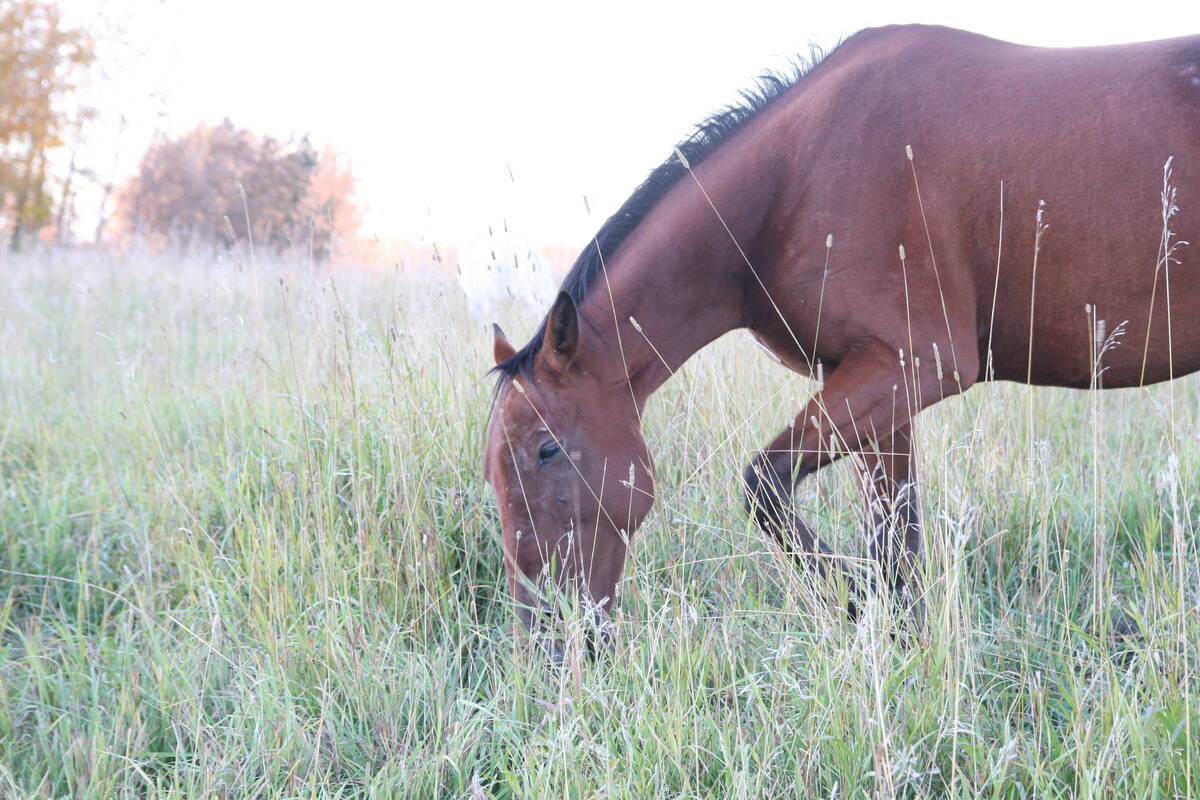“I’ve been at meetings for years where CFA people have been around and I may be forceful and make my points but I’m certainly not confrontational.”
TERRY BOEHM
The National Farmers Union (NFU) didn’t get to meet with provincial agriculture ministers last month because the Canadian Federation of Agriculture (CFA), which organized the event, said the NFU would be “confrontational.”
NFU president Terry Boehm takes umbrage with the CFA’s characterization of him and the NFU.
Read Also

Beware giving horses too much iron
Horses consuming too much iron through diet or well water risk health problems like laminitis. Mineral testing forage and water is good practice for owners.
“We’re just expressing a different viewpoint,” Boehm said in an interview last week from his farm near Allan, Sask. “I’ve been at meetings for years where CFA people have been around and I may be forceful and make my points but I’m certainly not confrontational. I think I know the difference.”
Canada’s agriculture ministers held their annual meeting last month in Saskatoon. The CFA met the ministers before their meeting, as it’s done the previous 10 years.
“The meetings have always been a very open and frank discussion between ministers and the members of CFA,” CFA president Ron Bonnett said from his farm near Bruce Mines, Ont. “We’re not going in for a big fist fight.”
The NFU wanted to ask agriculture ministers to support legislative changes to save producer-car loading sites, push for a review of railway costs and to oppose the Canada-European Union Comprehensive Economic and Trade Agreement.
The CFA’s ministerial meeting agenda focused on the CFA’s National Food Strategy. To complement the discussion the CFA invited the Canadian Cattlemen’s Association, Grain Growers of Canada and Canadian Agri-Food Trade Alliance to attend, Bonnett said.
“Detraction”
In an email rejecting the NFU’s request to take part, CFA executive director Brigid Rivoire wrote that the CFA and NFU had worked closely on some issues in the past.
“However, the board was concerned about the confrontational tone of the NFU at this year’s FPT (Federal, Provincial Territorial ministers’ meeting) and its planned protests and felt this was not in keeping, and in fact could serve as a detraction, from the collaborative and constructive tone of the meeting.”
The NFU did hold a demonstration July 6 attended by 50 or 60 people, followed by a meeting. But Boehm said when the NFU asked to participate, it hadn’t announced the demonstration.
“I think that was a convenient escape valve…” he said.
With just a few legislative changes, Canada’s federal government could do a lot to help western grain farmers, Boehm said. Farmers, for example, can save more than $1,000 loading their own wheat in rail cars, but the railways are scrapping producer car loading sites.
“A century-old right to producer cars is essentially being undermined by the practical reality of not having loading sites within a reasonable distance so farmers can access them and fill a car within 24 hours,” Boehm said.
A recent study commissioned by the Canadian Wheat Board (CWB) says farmers are paying more than $8 a tonne too much to the railways for shipping grain. Ottawa, he said, must review rail costs to see if the report is accurate and, if it is, adjust the formula for setting the cap on railway revenues for grain shipping.
The NFU is also opposes the Canada-EU trade deal currently being negotiated. According to Boehm the draft text contains draconian regulations that would give more power to seed corporations and compromise farmers’ right to save seed.














